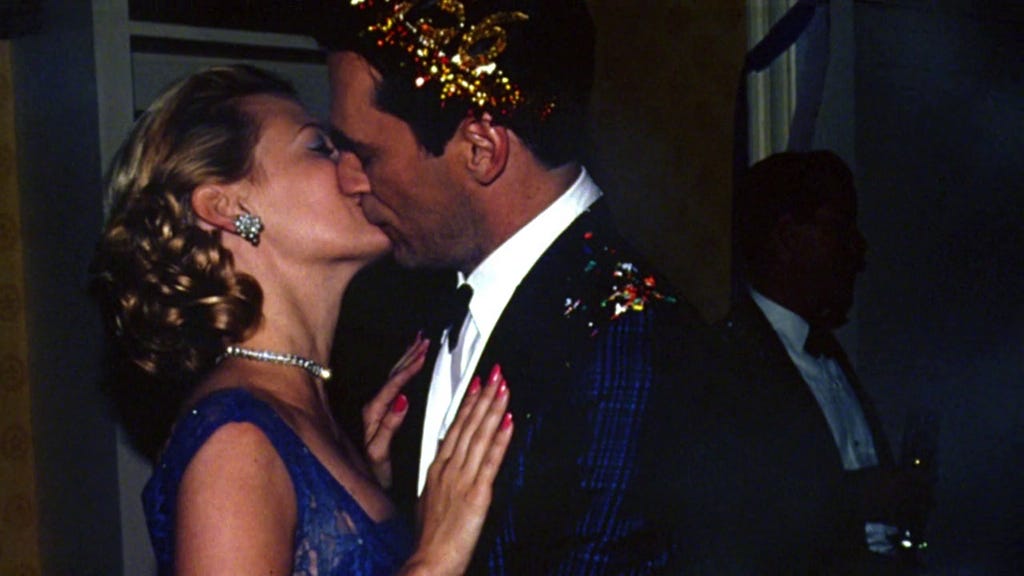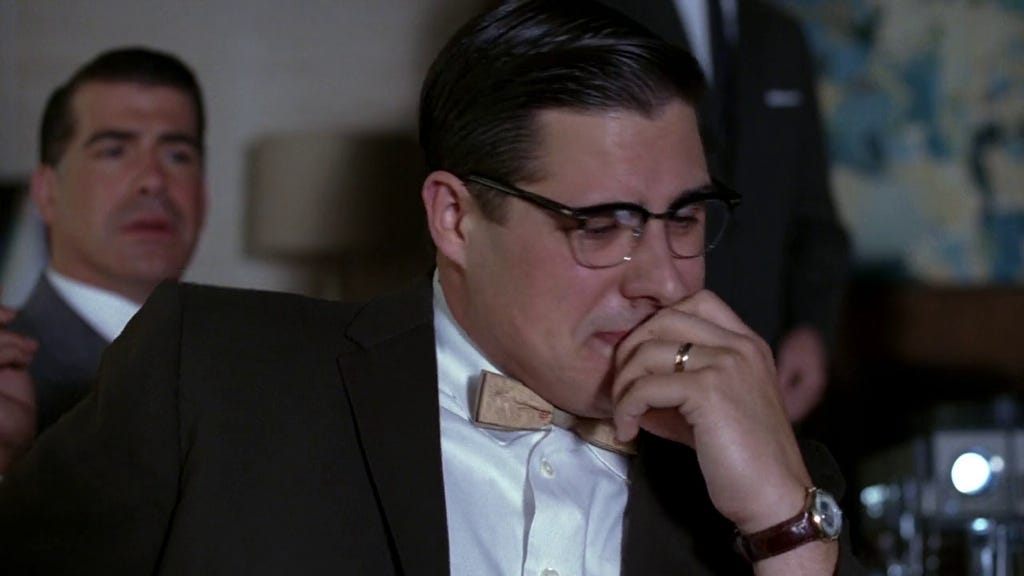Remembrance of Things Past.
A slightly personal, post-CoVID look at “The Wheel”: the season 1 finale of Mad Men.
(all underlined items are hyperlinks to videos, so enjoy!)
15 September, 2020. It’s been more than 6 months since a global quarantine was announced. I’m in India, which is now the fastest-growing country in CoVID-19 cases. How I passed much of our free time was trying to consume pop culture, and that was when I wasn’t worrying about finding useful work, or doing something productive. Sometimes, I chucked away work, or any hopes and aspirations of finding work for just whiling away my time instead. It had become painful to be nostalgic anymore. I was just in one lost fish in a treacherous sea. It wasn’t easy to find joy in my hobbies when the alternative — feeling sorry — was easier, which is why I’m incredibly happy I’m writing this today. It’s been the longest while since I’ve written something just for myself. It’s probably tied in with this whole idea I have of becoming independent of any systems in this pandemic, and just becoming self-sufficient in terms of skill or capability. But, that’s a long process in itself.
Anyway, in my free time, I’ve been watching Mad Men. Yes, yet another show about the classic white American antihero who is likely a hedonistic workaholic, an utter philanderer who knows better than to be emotional (sounds like a bunch of them, doesn’t it). I don’t identify with anybody in the show, thankfully. But, there was one recurring concept that has been running in my mind for a while, especially when 90% of my day involves me sitting on my ass in front of a laptop, opening a hundred tabs, working, or pretending to.
You don’t need to watch any bit of the show to know how Don Draper’s charm has invaded the realms of everyday pop culture. But the charm comes with a bottleneck: Don doesn’t care if he breaks hearts in the midst of all his adventures. He doesn’t look back at anything that’s already happened. In an age where nostalgia is an emotion so big that it allowed Netflix to sell to everyone the story of the magic years of the Chicago Bulls, looking back may sometimes be considered healthy for your sanity. Most of us have gone through our old photos, reminiscing what a campus used to look like before LinkedIn and Microsoft Teams took over. And there’s definitely been a time where looking at those photos may have stirred a longing for a return to the old normal. For me, too, it wasn’t great. In one way, I found my best self in college, and I was worried that on both the professional and the personal fronts, I was becoming a shadow of the me in the beginning of the year. So, I avoided looking at old photos, because I was okay with not crying over the passing of olden, golden times.
(No, I didn’t feel like Don Draper anyway, that’s a statement I will never make, and I’m definitely not that conceited.)
However, on the 15th, that is, yesterday, I realized some things about myself. Of course, it happened because I was listening to one song, which led me to think about other things, and then that somehow connected to my being. Basically, the reason I’m writing this piece. Enter Robert Zimmerman, a curly-haired, deep-throated man who used to perform at The Gaslight Cafe in New York in the 1960s. He made an album about freewheeling or something, I don’t know, I never played the full album. But he did make this song called “Don’t Think Twice, It’s All Right”. The song is supposedly about one of the many (?) heartbreaks our man Bob Dylan went through. Why I know about this song is because of the subject of this article; the Mad Men episode in question.
Don makes a pitch to Kodak to bring them onboard as one of his clients. In his presentation, he convinces them to market one of their projectors as “The Carousel”, branding it as a joyride in a theme park ride. That’s also what the projector looked like. But why Don did so had nothing to do with its appearance; that tag of “The Carousel” had more to do with his unfulfilled desire to have a functional, normal, easy childhood. Maybe, there was some value to nostalgia. Don could have been someone else, but his past seemed to affect him, and by way of chain reaction, everyone close to him. But, more than that, Don was using photos from back when his children were born. This construct of his, his family, for which he can truly pat himself on the back on is the only thing in the present that’s giving him solace. And all the while, the buttresses that prop up this construct are crumbling (and how they do I can’t tell you because spoiler alert). It’s more complex than mere melancholy, because it also gives him motivation to be a better, more faithful and emotionally resonant version of himself. And it’s no coincidence that it’s the closest his soul has come to crying, before the show makes sure he breaks down somewhere in season 4. Everyone else in the pitch was moved to tears, anyway.
Sure, it’s also a commentary on how consumerism appeals to our base desires. But that’s not the point. I think of this episode, and the fact that it closes with the soulful Dylan masterpiece. The pandemic has made it harder for us to be any bolder. Taking risks doesn’t seem like a viable option. But there’s tons of double-thinking, too. There’s always doubt about the future. So we find comfort in the past. How about using the past to prop us to build ourselves better? I want to be the person I was before the lockdown, and if the only constraint I have is that I play by new rules, so be it. But if there’s anything I’ve learned from the movies, it’s this: some rules can be bent. Others, broken. Thanks, Morpheus. You make more sense than Elon Musk.

For me, at least, that’s what I’m trying to do. It’s these memories I have, that I know have an epilogue that I completely intend to see through, but for the better, not for the worse. I can’t forget that I had a life before these 6 months. Not that I should live in dreams made out of my honest-to-God stories from the olden, golden times, either. And I’m sure that “acknowledge and move on” is not the middle-ground solution to this conundrum. I’d rather I follow this acknowledgement with the idea that this nostalgia can guide me to places I yearn to be back in. And if not the ones I can be back in, then the ones which are better than those.
Bob Dylan singing “Don’t Think Twice, It’s All Right” has more to say about nostalgia and self-doubt than heartbreak for me. The song revels in what was and what could have been. However, every stanza ends with the same line about moving on. It informs Don’s situation in a weird way, of course: he is utterly incapable of healthily dealing with his past when it catches up with him. Which is the exact thing that both the show and the song don’t want you to do. And I think that’s not half-bad advice to follow.
I’m in season 5 of Mad Men, one of the few shows I’ve had the pleasure to watch in the quarantine, and that have influenced me in crucial, good ways. I hope to write about those too someday, not with the intention that someone reading this gets some intuition, but because I want to highlight the power of pop culture. And maybe sometime, talk about those shows in a more general, non-personal sense.
Till then, here’s a fantastic track straight from the mouth of a Nobel Prize winner.



